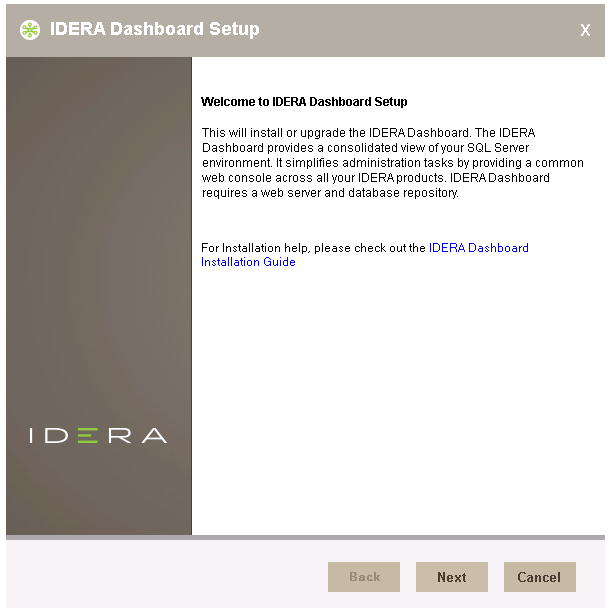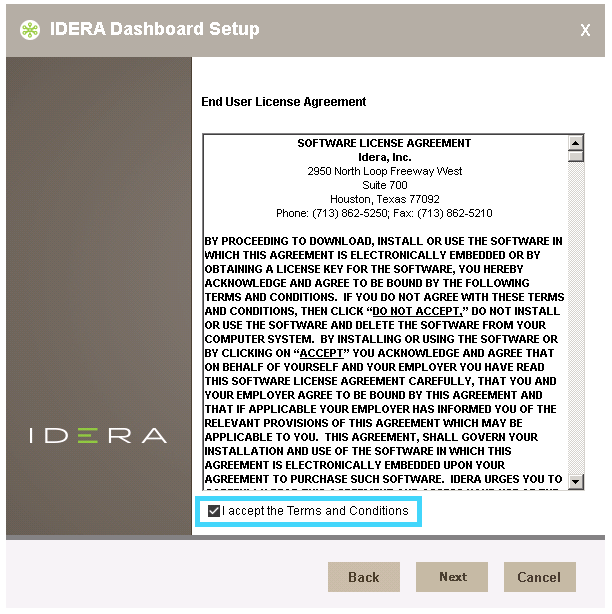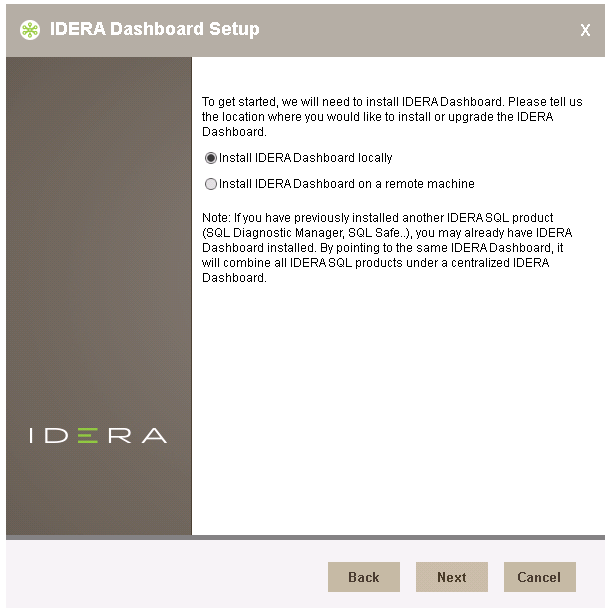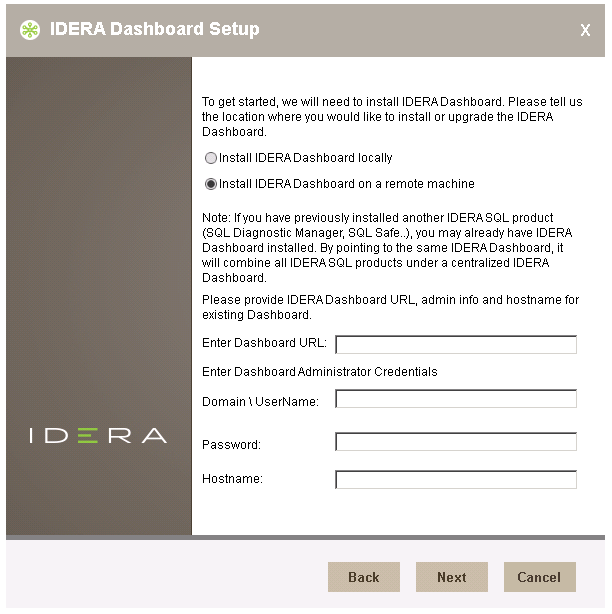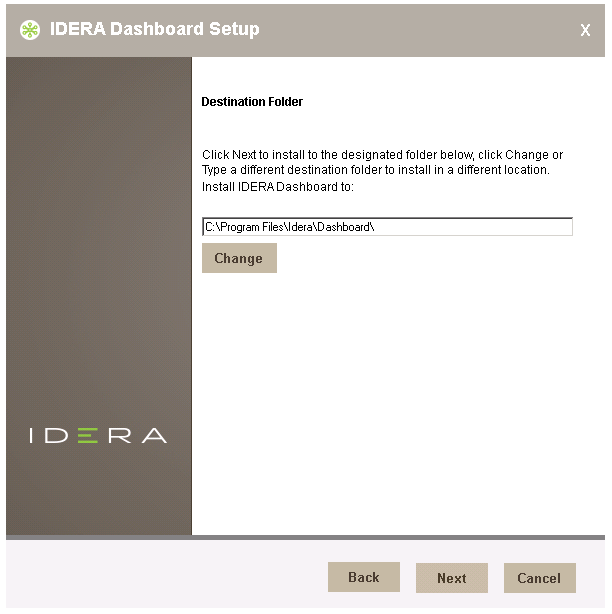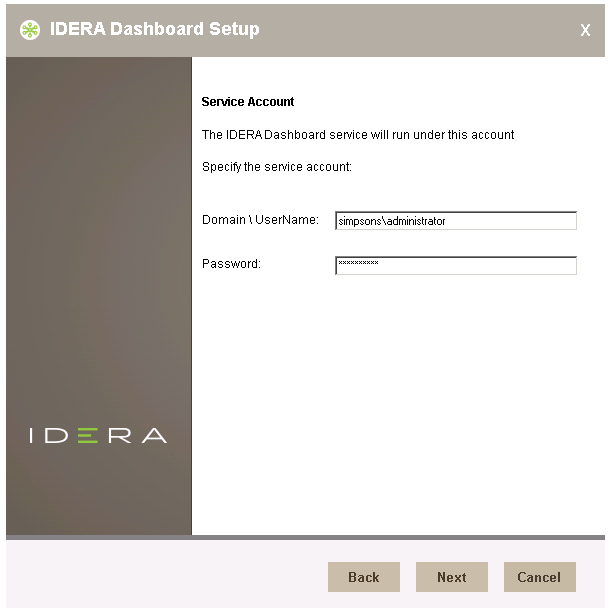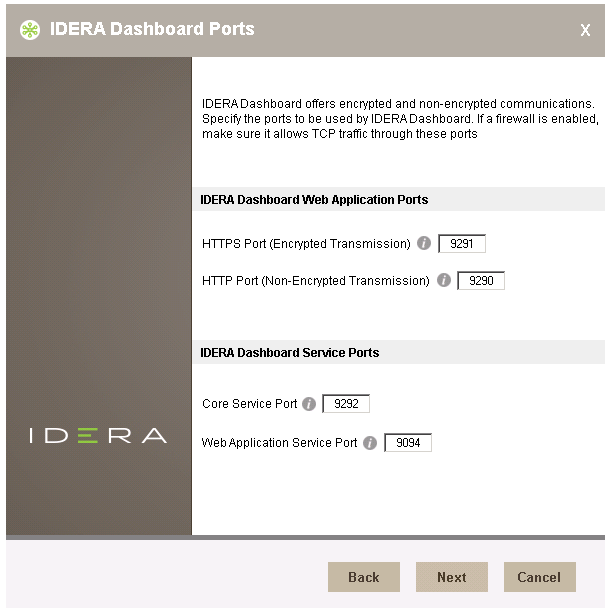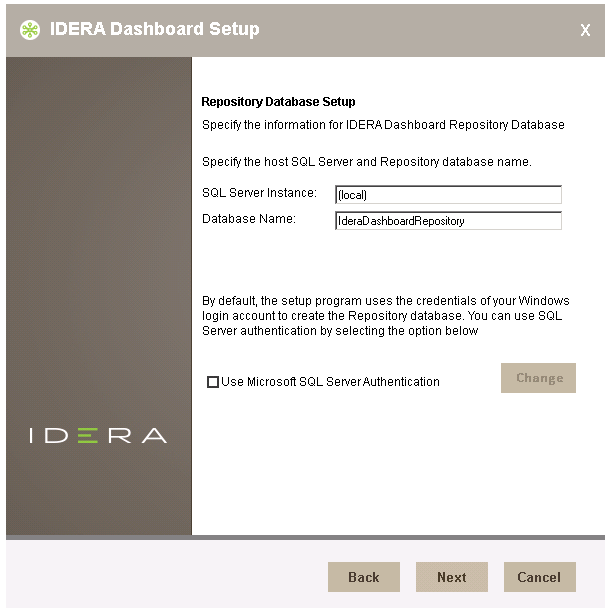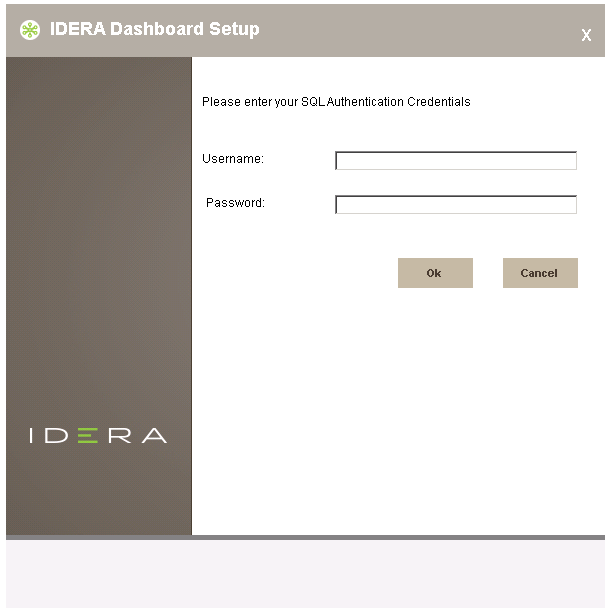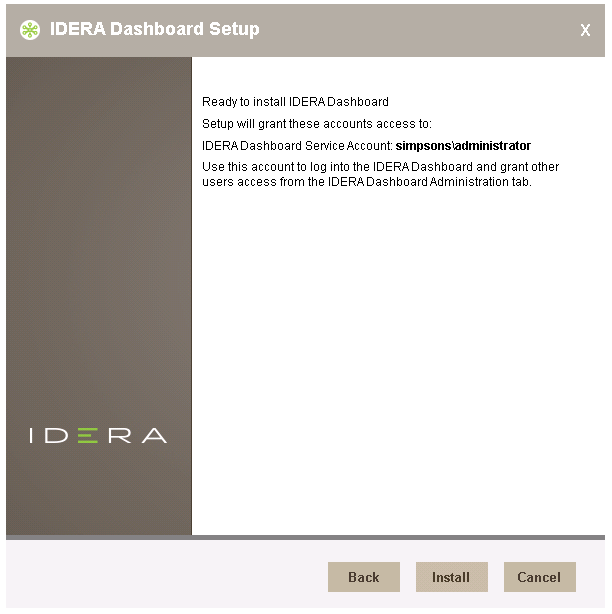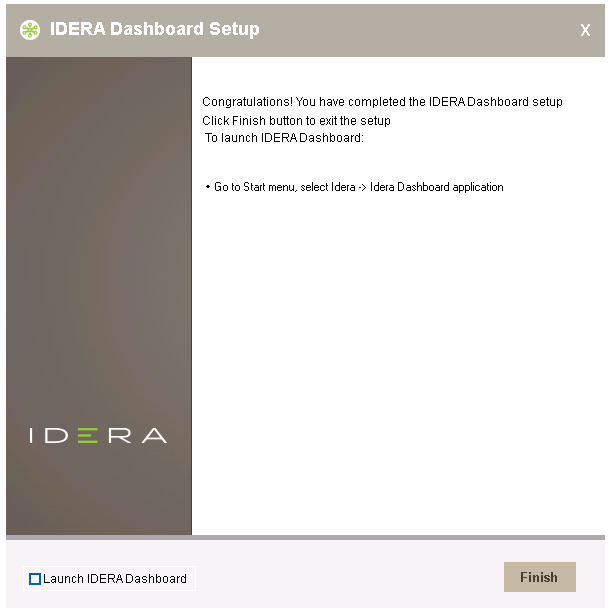This section guides you through the installation of the IDERA Dashboard, a common technology framework for IDERA products.
Before you install the IDERA Dashboard, be sure to have:
- A local administrator account on the machine where you are installing the product.
- Microsoft .NET 4.0 Framework or later installed.
The IDERA Dashboard Web Application service comes with SSL already set up. By default, SSL works with a self-signed certificate. This certificate can be used for encryption only and does not prove the identity of the server.
That default certificate is not signed by any well-known Certification Authority (CA), and is intended only for use in testing purposes. When a user attempts to open the SSL version of the IDERA Dashboard Web interface, a warning appears in the browser window. For more information about running the IDERA Dashboard over SSL, see Run IDERA Dashboard over TLS or SSL.
Start your installation
You can install the IDERA Dashboard on any computer that meets or exceeds the product requirements.
To start installing the IDERA Dashboard:
- Run
IderaDashboardSetupin the root of the installation kit. - On the Welcome to the IDERA Dashboard Setup wizard, click Next to continue with the installation.
- Review the license agreement. To accept this license agreement, click I accept the Terms and Conditions, and then click Next.
- To Install the IDERA Dashboard on the server you are working in, select Install the IDERA Dashboard locally, and click Next to continue.
- To install the IDERA Dashboard remotely, provide the Dashboard URL, Dashboard Administrator Credentials, the Hostname, and then click Next to continue.
Select an installation location
You can use the default install location or specify a different path (Change). For your first installation, we recommend using the default location. Click Next to continue with the installation.
Select a Windows user account to use for the service account
The IDERA Dashboard uses this account to connect, discover, and gather configuration information from SQL Servers in your Business environment. The installer grants the "Log on as a Service" right to the account that you specify.
To specify a service account:
- On the Service Account window, type appropriate credentials in the provided fields under which the services run.
- Click Next.
Select service ports to use for the IDERA Dashboard
The IDERA Dashboard uses ports 9291, 9290, 9292, and 9294 for the web application and dashboard services respectively. However, you can specify different service ports.
To specify a service port:
- On the Ports window, specify the ports you want the Web Application and Dashboard Services to use.
- Verify that the Firewall allows TCP (Transmission Control Protocol) traffic through your specified ports.
- Click Next.
Select a SQL Server instance to use for the IDERA Dashboard Repository database
The IDERA Dashboard is where all the Dashboard's configuration and aggregated data are stored.
To specify the SQL Server instance to install the Repository database on:
- On the Repository Database Setup screen, specify the SQL Server instance you want to use for the IDERA Dashboard Repository database.
- Type the name for the IDERA Dashboard Repository database.
- If your SQL Server environment uses SQL Server Authentication, select the check box and click Change to enter SQL Server credentials. By default, the IDERA Dashboard uses your Windows credentials when connecting to the Repository database.
- If you use Microsoft SQL Server Authentication, a new window displays where you can type the respective SQL Server login and password, Click OK to continue.
Complete the installation
Review the information on the Ready to install the IDERA Dashboard wizard and click Install to proceed.
Check the Launch IDERA Dashboard checkbox to run the application after the installation finishes. Click Finish to exit the IDERA Dashboard Setup Wizard.
The IDERA Dashboard installation is complete.
